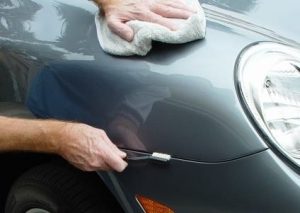
As a car owner, it’s only a matter of time before you encounter some technical issues that may leave you stranded on the side of the road. While some problems require the expertise of a professional mechanic, there are a few common car issues that you can troubleshoot and resolve on your own. In this article, we will discuss some of the most frequently encountered car problems and provide you with practical solutions to get you back on the road in no time.
1. Battery Problems
One of the most common issues faced by car owners is a dead or weak battery. If you find your car won’t start, chances are it’s a battery problem. To troubleshoot this issue, begin by checking the battery connections. Make sure the terminals are clean, tight, and free of corrosion. If necessary, clean the terminals using a battery cleaning brush and a mixture of baking soda and water. If the connections are secure and corrosion-free, jump-start your car using jumper cables and a good Samaritan’s vehicle. If your battery consistently dies, it may be time to replace it.
2. Engine Overheating
Another common problem faced by car owners is engine overheating. If you notice your temperature gauge rising above the normal range or see steam coming from under the hood, it’s crucial to address this issue promptly. First, turn off your engine and allow it to cool down. Check the coolant level and ensure it is at the appropriate level. If the coolant is low, fill it up with the correct mixture of water and coolant. However, if the coolant is already at the proper level, a faulty thermostat, a malfunctioning radiator fan, or a clogged radiator may be the cause. Consult a mechanic to diagnose and repair these issues.
3. Warning Light Illuminations
Troubled by an illuminated warning light on your dashboard? Don’t panic; it’s your car’s way of communicating an issue. However, it’s essential not to ignore warning lights as they often indicate potential problems. Here are a few common warning lights and their meanings:
Check Engine Light: This light indicates a problem with the engine. While it can represent numerous issues, it’s best to consult a mechanic to diagnose and resolve the problem.
Brake Warning Light: If this light remains illuminated, it indicates an issue with the braking system, such as low brake fluid or worn-out brake pads. Have your brakes inspected immediately.
Tire Pressure Monitoring System (TPMS) Light: This light warns you that one or more tires have low air pressure. Check your tires and inflate them to the recommended pressure.
Remember, these warning lights vary across car models, so consult your vehicle’s manual to understand the meanings specific to your car.
4. Strange Noises
If your car produces unusual noises during operation, it’s crucial to address the issue promptly as they often indicate underlying problems. Here are a few common noises and their possible causes:
Squeaking Brakes: Squealing or squeaking brakes may indicate worn-out brake pads. Have your brake system inspected and replace the brake pads if necessary.
Rattling Under the Hood: A rattling noise under your car’s hood may indicate loose or worn-out belts or a problem with the timing chain. Consult a mechanic to diagnose the issue.
Grinding Gears: If you hear grinding noises when shifting gears, it could be due to a problem with the transmission. Have a professional examine your transmission system and make the necessary repairs.
5. Electrical Issues
Electrical problems, such as malfunctioning lights or power windows, can be frustrating. Troubleshooting such issues often involves checking the fuses and relays associated with the problematic component. Start by locating the fuse box and consult your vehicle’s manual to identify the fuse corresponding to the faulty component. Check the fuse for any signs of damage or test it with a multimeter. If the fuse is blown, replace it with a new one of the same amperage rating. However, if the fuse appears intact, a wiring problem or a faulty switch may be the cause. Seek professional assistance to identify and fix electrical problems.
While these are some common car issues and practical solutions, it’s important to remember that each vehicle is unique. In case you’re uncertain or uncomfortable with troubleshooting on your own, it’s always recommended to seek professional help to avoid further damage or accidents. Regular vehicle maintenance and prompt attention to any unusual signs or sounds will help keep your car running smoothly and ensure your safety on the road.

